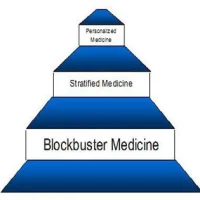Twelve years have passed since the mapping of the human genome in 2003. Since then, much has been learned about how people differ genetically. We may be 99.9 percent the same from a genetic perspective, but that differing 0.1 percent of genes comprises approximately three million genomic variants that are different between two people. Identifying the ones which are responsible for devastating illnesses such as Alzheimer’s Disease, cancer and diabetes is the focus of ongoing research.
Genomic and Individualised Healthcare
Precision medicine, also known as personalised medicine or individualised medicine, involves the use of a person’s genetic information to outline the ideal plan for preventing disease, diagnosing illness and treating health problems. The implementation of personalised medicine will benefit from renewed efforts to accelerate novel discoveries in genomics and the development of innovative delivery methods. In his recent State of the Union speech, President Obama called for a national initiative to advance individualised medicine, including more funding for the National Institutes of Health (NIH).
“We are now poised to apply genomic technologies developed with the findings of the Human Genome Project into everyday patient care,” said Richard Weinshilboum, MD, the acting director of the Mayo Clinic Center for Individualized Medicine. He describes 10 ways that personalised medicine can be advanced for maximum patient benefit.
Advancing Precision Medicine
- Including bioinformatics in medical and graduate school curricula, in order to provide new doctors and care providers the tools for using genomic data. Bioinformatics involves the interpretation of genomic data via sophisticated systems which can quickly find variants that play a part in disease progression.
- The expansion of government regulations to keep pace with genomic technology developments, especially technology and treatments which may represent alternative pathways for drug development targeting small groups of patients.
- The revision of insurance guidelines, so that genomic-based therapies are included.
- Biobank standardisation, ensuring that various banks use the same terminology and templates for more widespread usefulness.
- The creation of safe, annotated data repositories where protected patient information can be stored and shared by multiple institutions.
- The development of electronic health records which can store genomic data and easily interact with genomic databases.
- The use of genomics to pinpoint which drugs might be used in specialised cancer therapy.
- The addition of incentives for collaborative research efforts.
- The creation of nationwide clearinghouses to match patients with ongoing genomic clinical trials.
- The cooperation of local and federal regulators in developing pathways for next-generation sequencing tests.
The Mayo Clinic Center for Individualized Medicine is the world’s first integrated and multidisciplinary clinic devoted to the study of genomics. It strives to develop personalised care plans for Mayo Clinic patients who have complex diagnoses and advanced cancer, using data from the latest research in genomic, molecular and clinical sciences.
Source: Mayo Clinic
Image Credit: Pixabay


![Tuberculosis Diagnostics: The Promise of [18F]FDT PET Imaging Tuberculosis Diagnostics: The Promise of [18F]FDT PET Imaging](https://res.cloudinary.com/healthmanagement-org/image/upload/c_thumb,f_auto,fl_lossy,h_184,q_90,w_500/v1721132076/cw/00127782_cw_image_wi_88cc5f34b1423cec414436d2748b40ce.webp)







